How can data and technology be leveraged to benefit small businesses? Join Mayor Tishaura Jones and others at the Mastercard Strive Small Business Summit and be a part of the conversation!
Strive USA Small Business Summit – St. Louis


How can data and technology be leveraged to benefit small businesses? Join Mayor Tishaura Jones and others at the Mastercard Strive Small Business Summit and be a part of the conversation!

Four Social Policy Institute researchers presented their papers and hosted discussions at the Association for Public Policy Analysis and Management (APPAM) conference from November 9-11, 2023. Below are the papers and discussions presented by the SPI team. Thursday, November 9, 2023 Friday, November 10, 2023 Saturday, November 11, 2023
Latest $1.5M grant will extend ongoing work to foster inclusive economic growth in St. Louis The Mastercard Impact Fund, with support from the Mastercard Center for Inclusive Growth —a founding partner of the Social Policy Institute (SPI) at Washington University in St. Louis — will continue its support for SPI with a second round of […]
Contact: Jason Jabbari, Associate Director of Community Partnerships, Social Policy Institutejabbari.jason@wustl.edu. ST. LOUIS, Missouri (August 28, 2023) – The Social Policy Institute (SPI) at Washington University in St. Louis has received a two-year, $475,000 grant from the Lumina Foundation. These funds will support a research project aiming to understand the impact of short-term credentials on […]
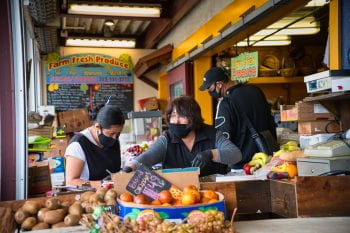
JPMorgan Chase has awarded a $1.6 million grant to the Social Policy Institute (SPI) at Washington University in St. Louis in aid of its Workforce Economic Inclusion and Mobility (WEIM) Project to address the employment vulnerability of low-wage frontline and essential workers. Through this work, SPI will build a better understanding of the public policy […]

Join us and our partners for a webinar on findings from a recently published report on the impact of the expanded CTC on families raising children with disabilities.
The Social Policy Institute is proud to announce the launch of our Social Policy Research Scholars Program. With support from the JPMorgan Chase Foundation, the program supports doctoral students from historically marginalized populations underrepresented in academia in their research endeavors to achieve an inclusive society that is socially, racially and economically just. The scholars program […]

Yung Chun, research assistant professor of the Social Policy Institute and Brown School at Washington University in St. Louis, received a $350,000 research award from Habitat for Humanity International to evaluate homeownership programs implemented by local Habitat affiliates and investigate the impact on wealth building for households with low incomes. Through this project, the Social […]

This event took place in person from 8:30 a.m. to 4:00 p.m. on November 15 at the Clark-Fox Forum in Hillman Hall at Washington University in St. Louis and online. About the event At the summit, social sector colleagues with diverse roles and levels of experience joined together to connect and learn new strategies for leveraging data […]
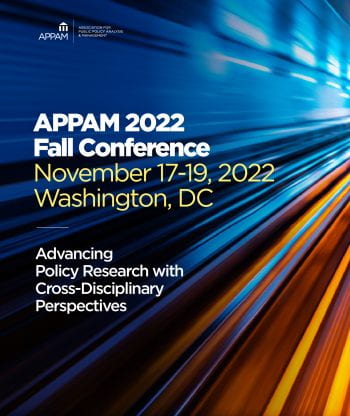
Social Policy Institute research will be presented in seven different panels during the APPAM conference Nov. 17 to Nov. 18, 2022. Below are the papers and discussions that will be presented by the SPI team, including staff and faculty affiliates.
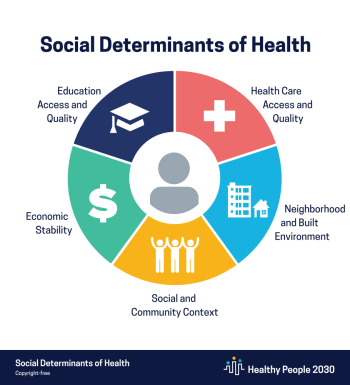
Prioritizing affordability of care will be the first step to ensuring that a healthy life is feasible for everyone regardless of finances.

A Trans-Atlantic Policy Forum could bring together academic researchers,
policy makers, advocates, and corporate leaders in the U.S. and U.K. to develop
insights to fuel changes in public policies and corporate behavior to promote the
financial security of low- and moderate-income (LMI) individuals and families.

Join us virtually at 1:00 p.m. (CT) on October 3, 2022, for a conversation about community engagement and data for change.

Join us for the in-person event, “The Future of Building Wealth: Research, Policy & Action,” from 2 p.m. to 5 p.m. (CT) on Oct. 11, 2022 with a reception to follow.
Applications for the Graduate Policy Scholar program are now open to all graduate students at Washington University in St. Louis! The Graduate Policy Scholar program provides students from all fields of study with impactful opportunities and training in policy. Offered by the Social Policy Institute and the Clark-Fox Policy Institute, the yearlong program provides students […]

Join us virtually at 1:00 p.m. (CT) on September 8, 2022, for a conversation on designing a collaborative data process to evaluate programs and create more equitable outcomes.
The relationships between artificial intelligence (AI), the social sciences, and the social sector have incredible potential. It is easy to imagine a disconnect between something that is, in name, artificial, and the study and support of human relationships. How are advancements in data science, such as AI, furthering the missions and shared objectives of non-profits, […]
By Abaki Beck, research manager at the Social Policy Institute I grew up picking root medicine with my family, knowledge passed down to my grandmother and aunts from their mother, and to my grandmother from her mother. I also grew up with a dedication to community activism from witnessing the health, economic and educational disparities […]

As a part of the St. Louis Research Practice Collaborative (SRPC) and in partnership with St. Louis University, Jason Jabbari, research assistant professor with the Social Policy Institute at Washington University in St. Louis, has joined a team that received a $255k grant awarded by the James F. McDonnell Foundation for research on student mobility. […]
Congratulations to the fifth cohort of the Graduate Policy Scholars who were inducted as scholars this May. Students represented departments across the university, including Arts & Sciences, Brown School, School of Medicine, School of Law, and the Olin Business School. The students who completed this rigorous program learned and engaged with policy as they developed […]
The Record announced a recent William T. Grant award for an education-based research grant with a research-practitioner partnership conducted by Jason Jabbari, research assistant professor of SPI.
Vox shares research on the impact of surveillance on children’s educational outcomes by Jason Jabbari, research assistant professor of SPI, and Odis Johnson, faculty affiliate of SPI.
Small business owners experienced a drastic economic disruption caused by the COVID-19 pandemic. Government pandemic assistance failed to reach many small business owners, especially those historically underserved by financial institutions. Drawing on a 2021 survey of 246 small business owners, the Social Policy Institute at Washington University in St. Louis descriptively examined the extent to […]

By Dan Zhao, postdoctoral research associate, and Michal Grinstein-Weiss, director When disaster strikes, it is easy to neglect the people on the boundaries. When assessing the impact of adverse economic shocks, whether it be natural disasters, pandemics, or factory shutoffs, the focal point is on those who were directly devastated by the shock. However, the […]

Join us at 10 a.m. on July 14, 2022, to connect with social sector colleagues to learn how to build equitable, client-centered data infrastructure.

Join us at 1 p.m. on June 15, 2022, to learn about transparent, equitable, and actionable practices for sharing data across organizations and sectors in St. Louis and beyond.
In an exclusive with The Marker, the Social Policy Institute investigated the economic impact of Ramadan in Israel.
The Marketplace interviewed Elaine Maag, senior fellow of the Tax Policy Center and co-author of the Child Tax Credit report by SPI, on the impacts the credit had on the financial security of American families.

The 2021 temporary expansion of the child tax credit (CTC) was unprecedented in its reach, lifting 3.7 million children out of poverty as of December 2021. It provided families with up to $3,600 for every child in the household under the age of six and up to $3,000 for every child between the ages of […]
Press Release: April 14, 2021 St. Louis (April 14, 2022)— In a new report published with the Global Economy and Development program at Brookings Institution, researchers at the Social Policy Institute at Washington University in St. Louis and Appalachian State University found that families who were eligible for the child tax credit (CTC) experienced improved nutrition, decreased […]

Thanks for joining us for the event on May 4, 2022! Find resources and the recording to learn more about cultivating a data culture that centers on collaboration and equity.

Join us at 1 p.m. on April 6, 2022, to connect with social sector colleagues around actionable tools for crafting a data strategy aligned with your mission and values
Three Social Policy Institute researchers will present their papers and host discussions at the Association for Public Policy Analysis and Management (APPAM) conference on March 28-29, 2022. Below are the papers and discussions presented by the SPI team. 10:15 a.m. (CT) on Monday, March 28, 2022 “Precarious Homeownership and Housing Inequity During the COVID-19 Pandemic” […]
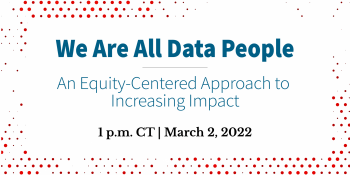
The launch of a series of free learning opportunities for increasing social sector impact, capacity and connection around data. About this event Social sector organizations can increase their impact and advance their missions by cultivating effective, ethical, and equitable data practices. Based on St. Louis social sector input, the Data for Social Impact initiative is […]

Stephen Roll, associate director of research at the Social Policy Institute, was interviewed by Yahoo! Money about a recent survey that found that employment did not decline during the period that the Child Tax Credit was in effect.
The Center for the National Interest highlighted SPI’s study finding that the Child Tax Credit supported parents to start their own small businesses.
The Associated Press shared research from SPI that found that the Child Tax Credit hasn’t changed employment.
The Center for the National Interest discussed SPI’s recent Child Tax Credit (CTC) study which found that the CTC did not create a significant change in the labor force.
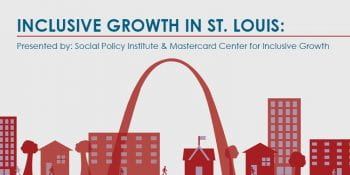
Who benefits from economic growth in St. Louis? Despite promises of job creation, increasing home values, new businesses, and representative leadership in St. Louis, the benefits of economic growth have not been equally, nor equitably, distributed. As the economy rebuilds itself from COVID-19 devastation, now is the time to consider how St. Louis can become […]

Given the novel and rapidly changing nature of the labor market, learning new skills quickly will become an increasingly important aspect of workforce development and social mobility. The Social Policy Institute investigates LaunchCode, a St. Louis boot camp with an apprenticeship model, as a viable option to increase wealth-building opportunities and upskill a more diverse labor […]
Yung Chun, data analyst III at SPI, and Selina Miller, postdoctoral research assistant, were interviewed by the St. Louis Public Radio on wealth inequality in the U.S.
Social sector organizations can increase impact, both individually and collectively, by being more strategic in how they engage with data. There is no one-size-fits-all approach, but rather a range of processes and practices for individuals and organizations to consider as they grapple with complex challenges in their communities.
Michal Grinstein-Weiss, director of SPI, and Oren Heller, postdoctorate researcher, were interviewed by Ynet about a study on access to new vocational training in Israel.
A Joint Economic Hearing Report highlighted SPI’s study on the usage and impacts of the Child Tax Credit in the U.S.
The Marker discussed SPI findings on the impacts of working from home on the Israeli workforce.
In an op-ed by Michal Grinstein-Weiss, SPI, and Salah Goss, Mastercard Center for Inclusive Growth, SPI research suggests that more equitable financial policies and services are needed to support small businesses.
Results from SPI’s Socioeconomic Impacts of COVID-19 Survey in Israel suggested a relationship between the pandemic and rising rates of food insecurity. To explore this, SPI launched another survey, with the results linking food insecurity to behavioral problems in children.
The Graduate Policy Scholars program kicked off its fifth year with a cohort spanning the Washington University in St. Louis campus. Fifty-seven students were invited to participate in this year’s program. While originally founded as a program for Brown School students, SPI has helped to expand the program across the university, with nearly 1/3 of […]

How can social sector organizations use data to increase their impact, and how can they ensure that impact will lead to equitable outcomes? These are guiding questions addressed in our roundtable series hosted by the Social Policy Institute’s Data for Social Impact initiative, which kicked off on October 20, 2021, and continues through November 19, […]

The St. Louis area is preparing to welcome up to 1,000 Afghans as part of the effort to resettle thousands who worked in support of the U.S. during two decades of conflict. Join this conversation, moderated by Brown School Associate Dean for Global Strategy & Programs Lindsay Stark, to hear perspectives from people deeply engaged […]